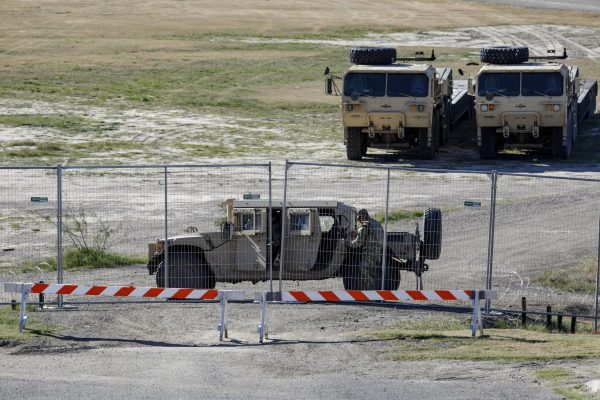New sexual violence prevention training program to begin this fall
This fall, a new training program called Campus Clarity will replace Alcohol Edu and combine the sexual violence awareness and prevention education with the required alcohol and other drug education.
July 31, 2014
It is estimated that for every 1,000 women attending a college or university, there are 35 incidents of rape each academic year according to National Sexual Violence Resource Center.
According to the 2012 Annual Security Report, there was one report of a forcible sex offense on the Stephenville campus.
“I want to assure you that Tarleton State University does not condone, tolerate or ignore any sexual assault, and seeks to provide a climate of dignity and respect in order to prevent the occurrence of such crimes,” Dottovio stated in an email.
National issues such as Dear Colleague Letters, White House and congress’ involvement and recent media attention have shined a light on this national problem according to Dr. Stephanie Robertson, the director of student counseling center.
One of the most aggressive laws to combat this stain on higher education, the Campus Sexual Violence Elimination Act (Campus SaVE Act), was enacted in March 2013. The amendment mandates extensive “primary prevention and awareness programs” regarding sexual misconduct and related offenses for new students and employees.
“The notion of ‘rape culture’ has gained national prominence, and in order to change a national culture, we must be willing to do the work to change our local culture,” Robertson said. “Tarleton is dedicated to our students, and establishing Tarleton as a safe place for our students is a priority. This requires the conversations, trainings and resources involved in changing a culture.”
The Campus SaVE Act is intended to increase campus transparency about incidents of sexual violence, enhance victim rights and set stricter standards for disciplinary proceedings.
The U.S. Department of Education is enforcing the Act at every post-secondary institution that participates in Title IX financial aid programs and Tarleton is revamping its procedures and policies in order to comply.
This fall, a new training program called Campus Clarity will replace Alcohol Edu and combine the sexual violence awareness and prevention education with the required alcohol and other drug education.
“Like any new program, there has to be a beginning point,” McGregor said. “While the activities above will target all new students, sophomores and other students living on campus will engage in many of the same programs in the residence halls and in other student housing. The professional Residential Living & Learning staff, with support from other Student Life Departments, will conduct these programs. In addition, Greeks, other student organizations and athletes will have this program presented to them.”
New programming began this summer with incoming students who attended or will attend Duck Camp. During the camp, students are engaged in discussions about sexual assault. This will also take place during Transition Week programs.
“These discussions will include bystander intervention and other ways to prevent sexual misconduct,” chief of staff Kyle McGregor said.
Robertson has been listening to students to attempt to determine student needs and to facilitate discussions across campus.
“I’ve made suggestions about programming to Vice President for student life Rusty Jergins and University President Dr. F. Dominic Dottavio and I’ve worked with Campus Clarity about our online training,” Robertson said.
The establishment of this program has been a “team effort” according to McGregor, consisting of the Student Counseling Center, Employee Services, Judicial Affairs, Residential Living & Learning and University Police.
The team has worked to create a partnership between Tarleton and the Texas Association Against Sexual Assault (TAASA), and supported campus/community partnerships (Students First Group). Additional campus programming and training have been recommended and are in the planning process.
“It is our hope that by engaging students in discussions of sexual assault in multiple formats or venues, we will be able to address many issues that proliferate sexual assaults,” Robertson said. “We hope to raise awareness of what does or does not constitute consent, how all students can intervene if they see something suspicious occurring and ways students can protect themselves and their friends. We also want students to know about their rights under both the Student Code of Conduct and legally.”
In addition, a new Tarleton web page is currently in the process of being developed to focus on this issue and to provide links to additional materials. Completion of the page is expected by August 1.
Other efforts Tarleton is making to comply with new sexual assault prevention legislation include, developing new policies and procedures to support reports of sexual misconduct and developing a plan to train investigators to assist with the reporting process, according to McGregor.





